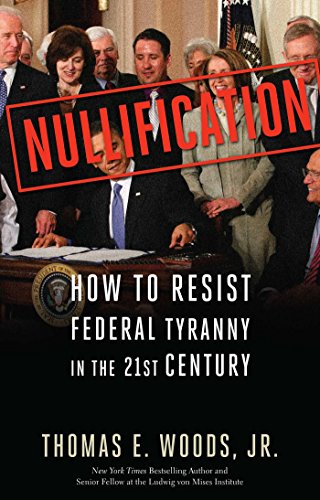Under the dubious proposition that the current economic crisis was caused by a sudden outburst of greed (as though greed did not always exist), a new growth industry in America is the teaching of "business ethics" at the university level.
 Hamiltonu2019s Curse: ...
Best Price: $3.92
Buy New $8.25
(as of 05:55 UTC - Details)
Hamiltonu2019s Curse: ...
Best Price: $3.92
Buy New $8.25
(as of 05:55 UTC - Details)
Business ethics courses tend to cherry-pick isolated examples of unethical behavior in the business world and insinuate that such behavior is inherent in all businesses. This ignores the reality of how markets work and misinforms students. Dishonest business people will be punished financially as customers cater to their competitors while suppliers refuse to do business with them. In cases of negligence, such as the BP oil spill, chief executives often lose their jobs, the company is sued, and the firm’s stock price plummets, as was in fact the case with BP. Such market feedback mechanisms do not guarantee ethical behavior, but they do reward it with customer loyalty — and profits. No such feedback mechanism exists in government, which is where much larger ethical problems exist.
Business ethics courses typically combine anti-business moralizing with advocacy of more government regulation of business and, subsequently, a greater politicization of society. In doing so they actually encourage unethical behavior because it is politics, not markets, that is inherently immoral. The founding fathers understood this, which is why Thomas Jefferson once said that government needed to be "bound by the chains of the Constitution." To James Madison, the Constitution was needed "to restrain the violence of faction." In his Farewell Address, George Washington warned of "cunning, ambitious, and unprincipled men" who tend to dominate politics. Thomas Paine viewed government as "a necessary evil," at best.
 Nullification: How to ...
Best Price: $2.00
Buy New $8.34
(as of 05:25 UTC - Details)
Nullification: How to ...
Best Price: $2.00
Buy New $8.34
(as of 05:25 UTC - Details)
What were these men talking about? Well, they understood that when government uses its legal monopoly on coercion to confiscate one person’s property and give it to another, it is engaging in what would normally be called theft. Calling this immoral act "democracy," "majority rule" or "progressive taxation" does not make it moral. Under democracy, rulers confiscate the income of productive members of society and redistribute it to various supporters in order to keep themselves in power. The government also pays itself very well out of these confiscated funds. Today the average federal bureaucrat makes about double the salary and benefits of the average private-sector worker according to the U.S. Department of Labor. State and local government bureaucrats make about one-and-a-half times their private-sector counterparts.
 The Road to Serfdom: T...
Best Price: $3.06
Buy New $1.99
(as of 03:40 UTC - Details)
The Road to Serfdom: T...
Best Price: $3.06
Buy New $1.99
(as of 03:40 UTC - Details)
In order to finance a campaign, a politician must promise to steal (i.e., tax) money from those who earned it and give it to others who have no legal or moral right to it. There are (very) few exceptions, but politicians must also make promises that they know they can never keep (i.e., lie). This is why so few moral people are elected to political office. The most successful politicians are those who are the least hindered by strong moral principles. They have the least qualms about confiscating other peoples’ property in order to maintain their own power, perks, and income. In his bestselling 1944 book, The Road to Serfdom, Nobel laureate economist F.A. Hayek described this phenomenon in a chapter entitled "Why the Worst Get on Top."
Successful politicians tend to be extremely egotistical, with inflated self images, an enlarged sense of importance, and a misguided sense of aggression. It is misguided because — with rare exception — it is not directed at serving their fellow citizens, as is the case with marketplace competition, but at serving themselves. They are showcases of the Seven Deadly Sins: self-pride trumps humility; envy poisons the heart of every crusader for "income redistribution"; wrath is what one experiences by opposing the ruling elite; sloth has long been associated with government bureaucracy; greed for power over others is politics personified; gluttony is frequently on display with the ostentatious lifestyles and conspicuous wealth of the Washington establishment; and we receive regular reminders that the leaders of the Washington establishment are not unfamiliar with the seventh deadly sin of lust. (Their bigger sin is the lust for power over others — and other governments).
In short, universities perform a disservice with their relative neglect of the real ethical problem in America — the politicization of society and the growth of government — while greatly exaggerating ethical problems in private enterprise.
Reprinted with permission from the Baltimore Sun.





